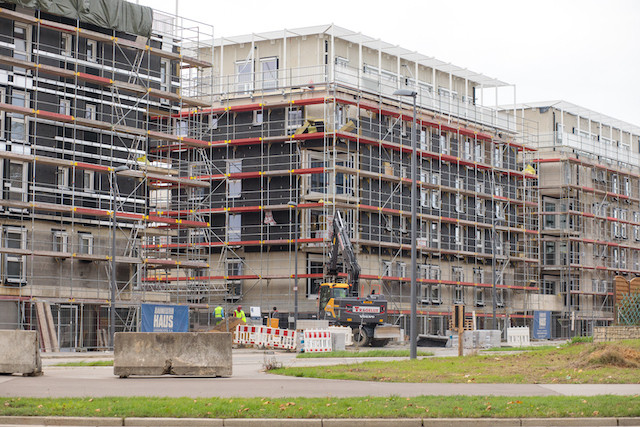“It doesn’t solve the problem”
A reform of lease agreements should come to a vote in parliament in 2021. Among other things, it reduces guarantee payments from three months’ rent to two months’ as well as splitting agency fees between tenant and owner.
But Mieterschutz--a not-for-profit to protect tenants’ rights--warns the reforms aren’t far-reaching enough.
“If the owner wants to use an agency, then they should pay for it,” says Jean-Michel Campanella, the organisation’s president. And while lease agreements in future need to mention rent commissions where tenants can complain if they feel they are being overcharged, Campanella says procedures need to become easier, too.
“You need to send a registered letter to the landlord that meets certain specifications. Only when you don’t get an answer can you contact the commission, also adhering to several legal dispositions. Most people cannot manage this on their own,” he says. Mieterschutz is planning on making templates available on their website soon.
The reform of lease agreements also updates the 5% rule--meaning that annual rent cannot be higher than 5% of capital invested in the property. But rent on many new builds already lies below this value. “It doesn’t solve the problem,” says Campanella. “Everyone can ask what they want.”
While the reform aims to be stricter, it also makes the calculation of rent more difficult, the organisation warns. “We’re already seeing contracts stating the tenant agrees that the lease respects the rules, meaning the owner passes the responsibility to the tenant,” Campanella says. The group is lobbying MPs to make further changes to the draft law before it comes to a vote.
New housing pact
A new version of the so-called “Pacte Logement” will come into effect in 2021, a programme supporting Luxembourg’s communes to create more housing for the country’s growing population.
“The Pacte Logement 2.0 is aimed at primarily creating social and affordable housing,” says interior minister Taina Bofferding (LSAP), who counts the government’s relations with municipalities among her responsibilities. “It’s important that communes aren’t left alone with this mission.”
Under the new housing pact, communes sign an agreement with the state under which a housing consultant helps local authorities draw up an action plan. The state and communes then agree on financial support to implement the plan. Municipalities must submit an annual progress report.
“If we want to advance in the question of housing, there is no way past the public sector, communes and the state, to take responsibility and get more active,” Bofferding says. A minimum of 30% of new housing developments must be affordable under the Pacte Logement 2.0.
To combat land speculation the minister has also proposed stricter deadlines for developers to begin construction once they have secured buildable land.
More than 2,840 hectares of land fit for construction are lying idle despite a shortage of homes. The same reform will make it easier for authorities to group together smaller parcels of land for construction. “Through all these instruments communes can better and more actively steer their own development,” says Bofferding.
Regulating shared housing
Plans by the city of Esch-sur-Alzette limiting options for people to live together could come to a head in 2021.
“It’s absurd,” says Justine Blau, a community organiser who herself lives in a flat share. “In any other city it’s normal. We don’t understand the commune’s response.”
After protests and petitions against the restrictions, the government intervened, warning the commune it was overstepping its powers.
As part of the lease reform, the housing ministry proposes a co-tenancy contract between tenants and owners, for example setting out the distribution of rent and bills payments. Owners will also be able to continue renting rooms out individually, with ceilings on how much rent they can charge in total.
“There are so many different forms of house shares and reasons people choose to live together,” Blau says, warning of unnecessary overregulation, especially in a university town. “There are already rules on cleanliness and occupancy,” she says. “We’re not sure if this law is the right solution.”
The commune of Esch at the start of 2021 is expected to decide on the new rules. Until then, “there are meetings, discussion. We’re lobbying, being present, and keeping the topic at the top of the agenda,” says Blau about the community activists.
